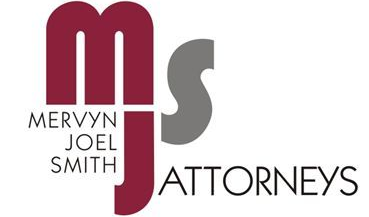When you’re buying, selling, or renting a home, the last thing you want to deal with is being scammed. But unfortunately, fraudsters are getting smarter, and there’s been a rise in sophisticated scams that target sellers and prospective tenants alike. The best way to protect yourself? Stay informed and alert—so you can confidently avoid these scams.
Remote Access Scams: Don’t Give Up Control
One of the newer scams on the block is the remote access scam. Here’s how it works: someone calls pretending to be from your bank or a telecom provider, claiming there’s been suspicious activity on your account. They’ll guide you to download a “security” app, which is software that lets them take over your device.
Once you log into your banking app, your screen might go black, and you’ll start getting OTPs (one-time PINs). The scammer then convinces you to share those OTPs, saying it’s to block the fraudulent activity. In reality, they’re the ones moving your money.
Tip: Never download apps or share OTPs at someone else’s request. No legitimate company will ask for this.
Email Scams & Fake Payment Details: Stay Alert
Another sophisticated scam involves scammers intercepting emails between estate agents, lawyers, and their clients. Just before a payment is due, the fraudster sends an email—posing as your agent or attorney—with “updated” bank details. These emails often look incredibly convincing, with addresses that are nearly identical to the real ones.
What happens next? The money gets sent to a fraudulent account and disappears.
Avoid these scams by:
✔ Calling your agent or attorney directly to confirm any changes in payment details.
✔ Double-checking email addresses carefully for small typos or inconsistencies.
✔ Avoiding sending large payments based on emails alone—verify in person or by phone whenever possible.
Fake Listings and Rental Hoaxes
Scammers also target prospective tenants by advertising fake rental properties. Sometimes they list homes that aren’t actually for rent, or pretend to be landlords and ask for a deposit before you’ve even seen the place. In some cases, they’ll even let you view a property with help from an insider—but it’s all part of the act.
Stay safe by:
🏠 Only renting through trusted, registered rental agencies.
🏠 Never pay a deposit for a property you haven’t seen in person.
🏠 Asking questions during viewings, especially if the current tenants are there.
🏠 Requesting that any upfront funds be held by an attorney until everything checks out.
Property Sale Scams: What Sellers Need to Know
Sellers aren’t off the hook either—scammers may pose as buyers with false financial information or fake interest in a property. In some cases, syndicates have even “sold” properties they don’t own by impersonating the real owners.
There are also instances where fraud occurs after a deal is cancelled. For example, a scammer may trick a conveyancer into refunding money to the wrong account by intercepting emails and providing false banking info.
Best practice for sellers:
✔ Always verify buyers’ identities and financial standing.
✔ Don’t rely solely on email—confirm any banking or payment changes by phone or in person.
✔ Work with experienced, reputable estate agents and attorneys.
Smart Ways to Stay Protected
To help avoid these scams, here are some tried-and-tested safety tips:
- Verify bank details independently before making any payments.
- Don’t click “reply” when sending important info—create a new email and use verified addresses.
- Watch out for red flags, like urgent changes, spelling errors, or email addresses that look “almost right.”
- Check your agent’s registration on the Estate Agency Affairs Board website.
- Avoid transferring money to any party that can’t prove they’re directly involved in the transaction.
- Insist on face-to-face meetings for important documents, or at the very least, a video call.
- Make sure your property professionals are insured and part of a trusted, established agency or firm.
Now more than ever, it’s essential to choose experienced and reputable estate agents and attorneys. These professionals understand how to spot scams and will have systems in place to protect you. Plus, they’re more likely to be insured, which offers an added layer of peace of mind.
So whether you’re selling your home or searching for the perfect rental, a little extra caution goes a long way. Stay alert, ask questions, and don’t rush decisions—and you’ll be far more likely to steer clear of trouble.
Article courtesy of property24
